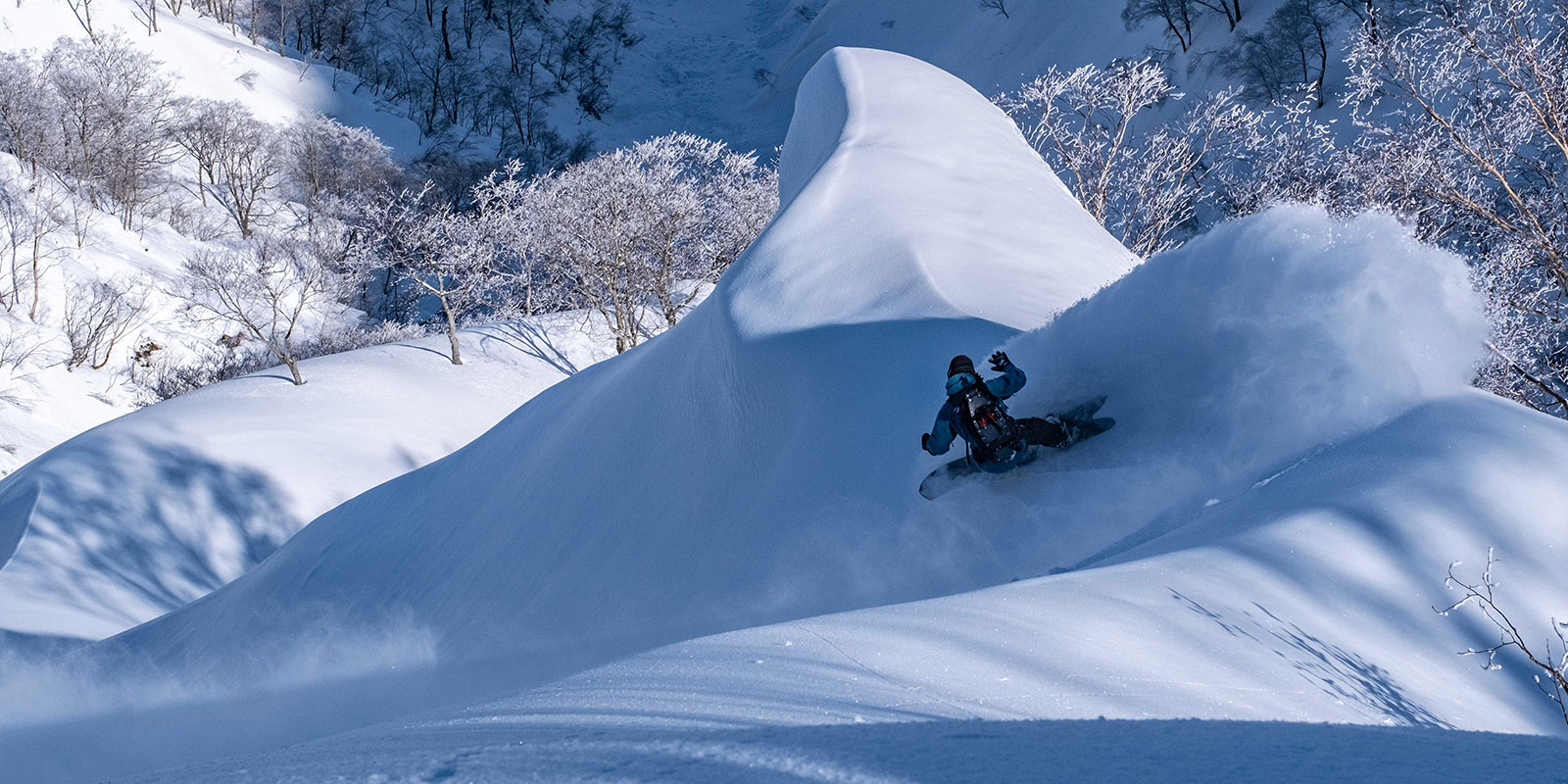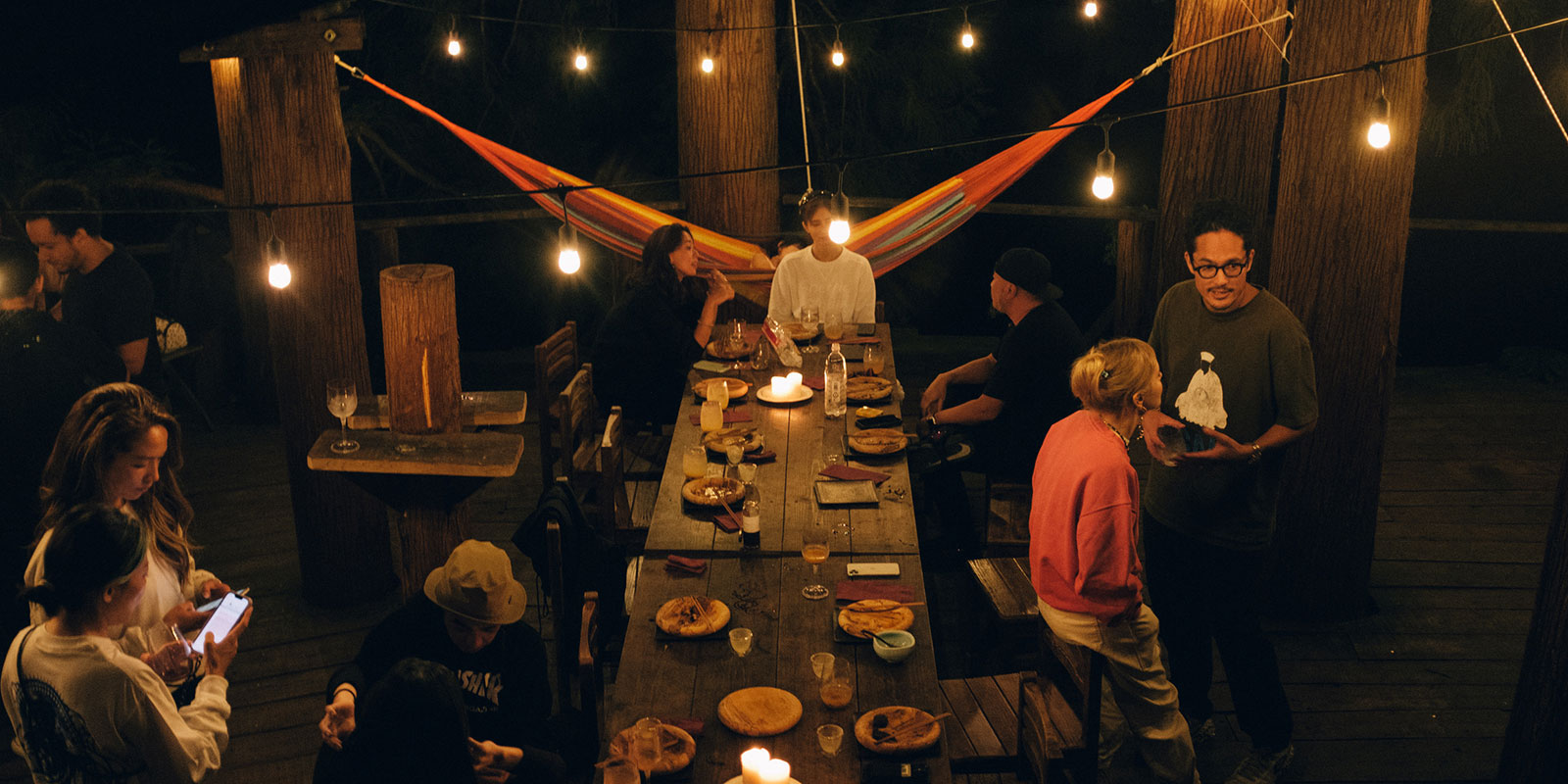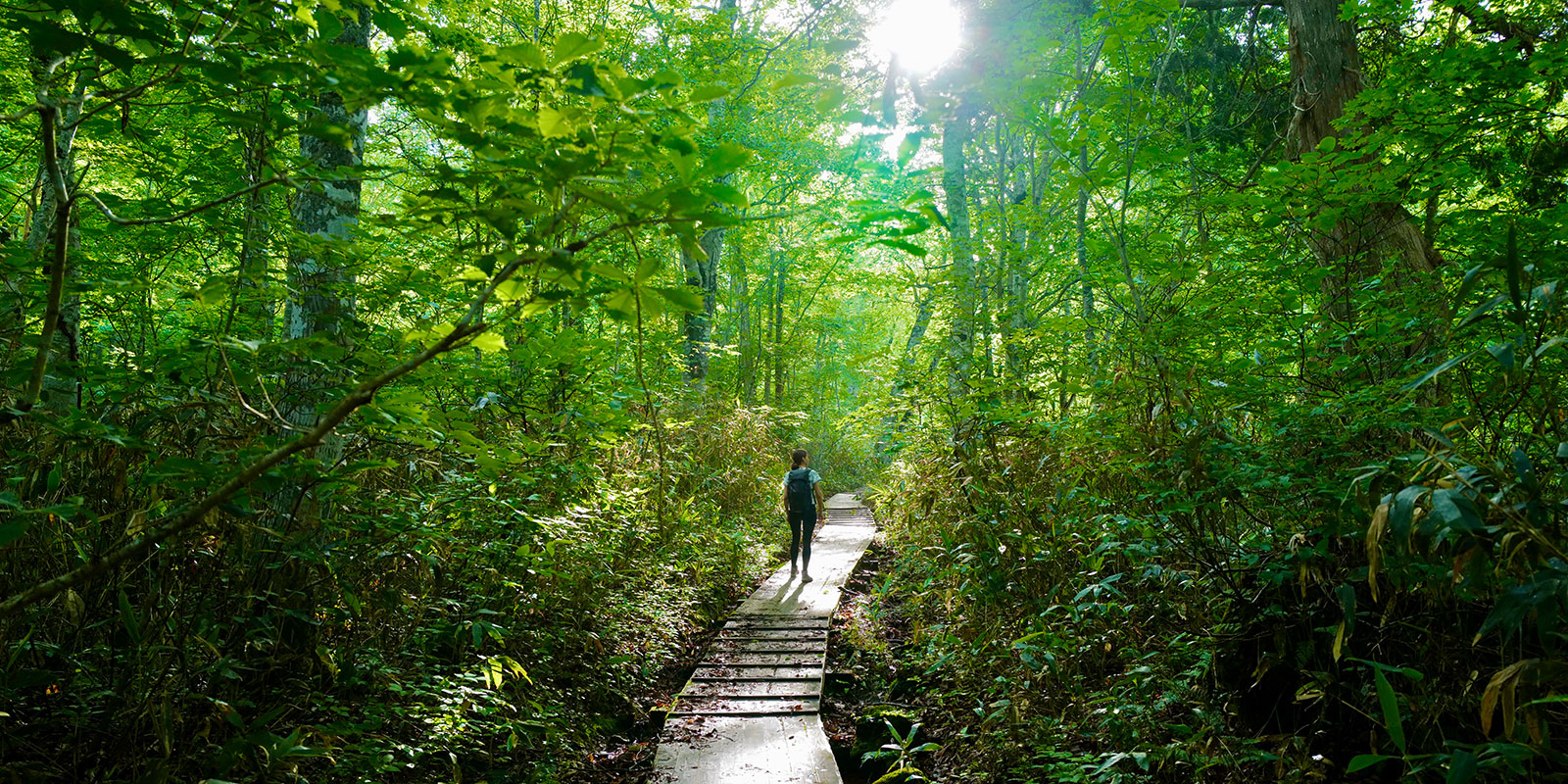Force of nature
Kammui founder Max Mackee tells Akiko Toya how the platform is helping visitors to experience Japan’s wild side
Max Mackee wants you to go wild. In 2022 the Japanese-British entrepreneur founded Kammui, a platform that encourages intrepid adventurers to explore Japan’s natural beauty. Kammui connects a curated roster of guides and experiences with those looking to get out and explore Japan’s less traveled corners. The platform was born out of Mackee’s love of backcountry snowboarding but has grown to offer activities from yoga to rock climbing, via surfing, kayaking, and farm experiences. Akiko Toya sat down with him to discuss connecting culture to the great outdoors.
What inspired you to start the company?
When I returned to Tokyo from London I fell in love with backcountry snowboarding [where you ride outside the boundaries of established ski resorts] and through this I realized the importance of nature for both my mental and physical health. This led me to learning about the unique way in which Japanese indigenous beliefs look at the natural world as well as reading more modern research on the importance of nature to people. This inspired me to start Kammui. The name reflects the Japanese idea that nature and spirituality are linked.
What are your most popular tours?
The most popular type of adventure tourism in Japan is still skiing and snowboarding, but we believe the country offers so much more. So in addition to offering these experiences, Kammui incorporates elements that are unique to Japan. For example, we could combine a day on the slopes with a Japanese whiskey tasting session, or a local guide taking you to a different hot spring every day between runs, and obviously offering delicious local food. Experiencing Japanese spirituality is also popular, and we offer opportunities to do so at places like shrines and temples. Combining natural and cultural experiences is what sets our tours apart.
 Kammui
Kammui
Do you mainly cater to international tourists, or do you also have many Japanese customers?
We are completely focused on international tourism. At the moment the U.S. is our largest source of customers with most reservations made through our website or through overseas online travel agencies. We only obtained our official travel agency license last December, so we have just begun to offer premium curated experiences that include accommodation. But we are adamant about partnering with top brands for our activities. For example, we have a partnership with ski brand Blackcrows and are working with them to create some truly exceptional and exciting experiences together.
“Japan’s nature alone is fascinating enough, but this country also has such cultural depth”
 Kammui
Kammui
What is special about adventure tourism in Japan?
Japan’s nature alone is fascinating enough, but this country also has such cultural depth. You see it in everything from design and the use of color to traditions such as the tea ceremony. We believe that by combining these aspects with nature-based experiences, we can create the best experiences in the world.
Are there any issues with the way adventure tourism is done in Japan?
I can think of a few. For example, ski resorts face the issue of having little connection with Japanese culture. Tourists may come all the way to Japan to ski or snowboard, but if they have few opportunities to meet Japanese people and experience Japanese culture, they are less likely to become repeat visitors. Also, even in attractive places such as [UNESCO World Heritage site] Kumano Kodo, there’s a lack of appropriate accommodation facilities.
 Kammui
Kammui
“In Fukushima, we are working on an experience that combines Japanese bonsai culture with national parks”
Which of your tours are you most excited about?
We are currently working for the Ministry of Environment to help create experiences for Japan’s national parks. In Fukushima, we are working on an experience that combines Japanese bonsai culture with national parks. I am excited about this as a truly innovative way to access nature through a cultural lens, but also the potential positive impact on a region that was impacted by the nuclear disaster. kammui.com/en